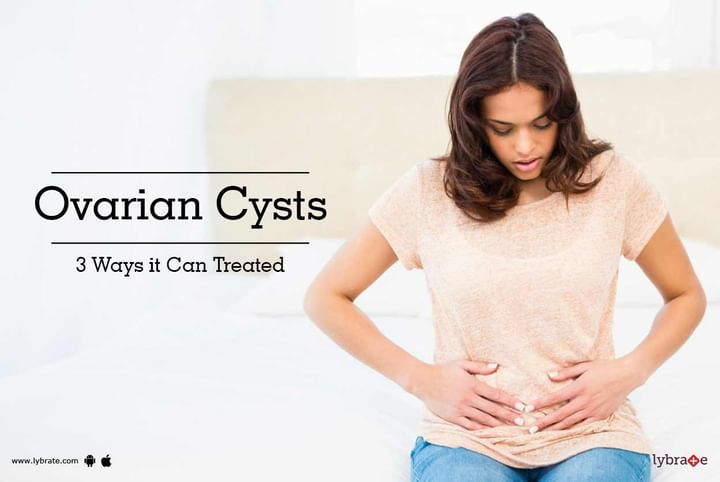Ovarian Cysts - 3 Ways it Can Treated
Ovaries are a part of a woman’s reproductive system. The primary function of ovaries include producing ‘ova’ or eggs and secreting hormones such as progesterone and estrogen. Cysts are fluid filled sacs that form the ovaries; they usually do not cause any symptom and are not painful.
There are primarily two types of ovarian cysts:
1. Follicle cysts: During a woman’s menstrual cycle, the egg develops in a sac known as the follicle. Under normal circumstances, the sac breaks open and releases the egg. When this doesn’t happen, fluids start accumulating in the follicle to form a cyst.
2. Corpus luteum cysts: Follicle sacs dissolve after releasing the egg, but in some cases, these sacs remain and the opening of the sacs gets sealed. It again results in fluid accumulation, leading to the formation of corpus luteum cysts.
Symptoms
Usually, cysts do not cause any symptom. If the size of the cysts increases, they may cause symptoms such as stomach pain, pain during bowel movements and sex as well as pelvic floor pain. The breasts may become tender and one may experience rapid breathing. Other symptoms of ovarian cysts are fever, nausea and dizziness. Usually, rupturing of a cyst leads to these symptoms surfacing; hence you would know when exactly to call the doctor.
Treatment
The treatment options for ovarian cysts are:
- Laparoscopy: Laparoscopy is carried out if the cysts are small in size. An incision is made close to the navel, through which an instrument is inserted to get rid of the cyst.
- Birth control pills: For chronic ovarian cysts, oral contraceptives are prescribed to stop the ovulation process in order to arrest the formation of cysts.
- Laparotomy: In case of large cysts, this procedure is recommended. A relatively bigger incision is made in the abdomen, through which the cyst is removed.
Ovarian cysts, if left untreated, can certainly cause infertility. Pre-menopausal women and who suffer from frequent hormonal imbalances in the body are the most vulnerable to this condition.



+1.svg)
